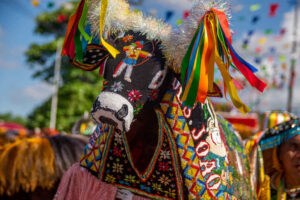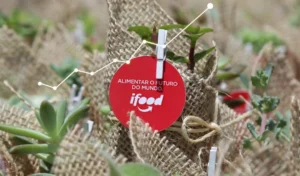The practice of low-carbon livestock farming is beginning to take shape in Brazil and seeks to reduce the emission of polluting gases
Did you know that even meat can be carbon neutral? The Low Carbon Livestock Platform, an initiative that began in Brazil with Embrapa (Brazilian Agricultural Research Company) in partnership with companies, certifies beef cattle products to ensure that this activity is reducing —and even zeroing out— its gas emissions pollutants in the atmosphere.
For this certification to occur, meat producers must work with Carbon Neutral Beef (CCN), Carbon Neutral Calf (BCN), Low Carbon Beef (CBC), Native Carbon (CN) and Carbon Neutral Leather (Leather-CN) , as well as a carbon calculator (calc-C).
These brands are considered “concept brands”, which represent precisely this cut carried out with low emission of polluting gases. Livestock farming is considered one of the sources of gas emissions that cause the greenhouse effect, especially methane, a gas generated in the animal digestion process.
Therefore, the idea is to compensate for these emissions by integrating production with the planting of trees and managing pastures appropriately, according to Embrapa. They are important in this process because the carbon removed from the atmosphere will be stored mainly in their trunks — and will be counted in the balance to neutralize emissions.
First certified farm
In the Brazilian market, CCN and CBC have already been used to certify the sustainability of agricultural systems that sequester carbon through trees (CCN system) or soil (CBC Protocol).
This helps agricultural systems work more sustainably, with a focus on low carbon emissions. It is important to remember that carbon dioxide, for example, causes environmental degradation and leads to air pollution, the formation of acid rain and worsens the greenhouse effect, hence the importance of creating emission reduction actions in all sectors.
In 2021, the traceability protocol finally certified the first Brazilian rural property as a carbon neutral meat producer: Fazenda Santa Verginia, located in Santa Rita do Pardo, in Mato Grosso do Sul. The farm's consultant, José Zacarin, explains that integration between crops, livestock and forestry brought benefits to its production.
On property 30% of the area is occupied by trees and 70% by livestock activities. “In this synergy between tree and animal, weight gain increases. As the animal uses more shade, it loses less heat, resulting in weight gain and less parasite infestation,” he told the CNA website (Brazilian Agriculture and Livestock Confederation).


